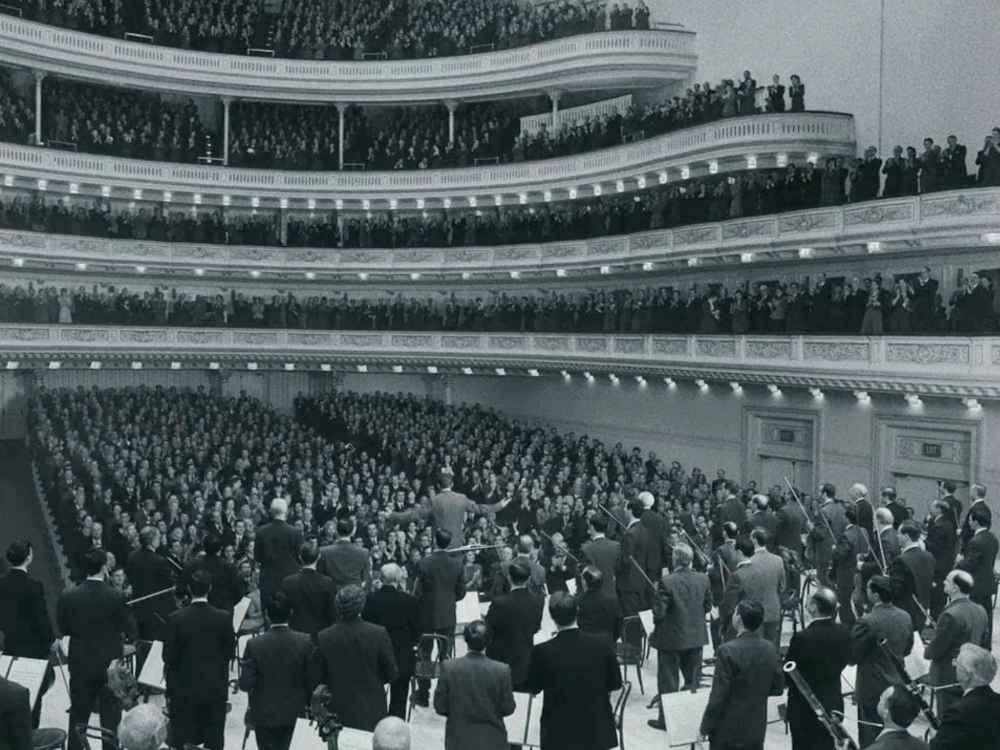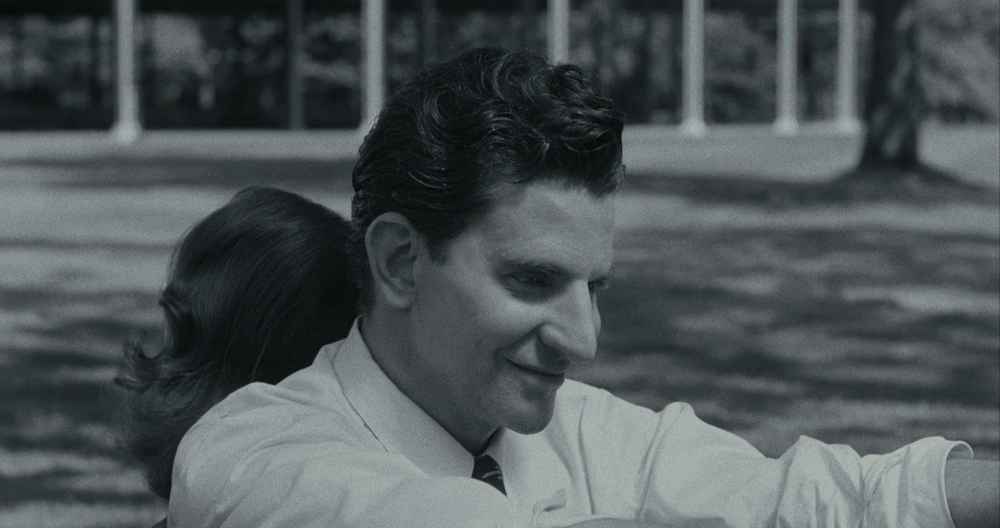By Victor Bennett, Film & TV Sub-Editor
The biopic of famous composer Leonard Bernstein, Maestro, is a film which embellishes the allegro vivace gifts of such a talented composer, but equally, the Mesto burdens that such talent brings with it.
The film has struggled to escape the controversy surrounding producer Bradley Cooper’s decision to wear a prosthetic nose when playing Bernstein. It would be remiss to overshadow the film’s artistic brilliance with such a controversy, so, for the sake of this article, that subject will be ignored.
Cooper does well to weave music and theatre into the fabric of the film, producing a tapestry which accurately portrays Bernstein’s complete submersion of and devotion to all things artistic.
The film is divided into two distinct sections. The first section is colour-graded in black and white, whilst the second is in full colour. Beyond denoting the decadent Hollywood aesthetic of Bernstein’s early career, this two-act effect reaffirms the theatrical derivations of Bernstein’s character and music.
Bernstein’s talent is portrayed as both the cause and effect of his permanent state of transgression. As a composer, Bernstein’s melodies and tempo, as heard in the film, are forever changing to an end which pushes and pulls the audience to his will.

As a conductor, Cooper does brilliantly to depict Bernstein’s grand gesticulations, unsurprising given that he worked for six years learning how to conduct and, more importantly, how to conduct as Bernstein. On the podium, Bernstein is vivacious and animated. Unapologetically overwhelmed by passion, it seems Bernstein is a man possessed by God.
Whilst in the depiction of him on the podium Bernstein’s hubris is dramatically brilliant, his hubris at other times comes out in less tasteful ways. In a conversation with his daughter, Bernstein dismisses the rumours of him being gay as acts of jealousy, as petty gossip which others weaponize to stain his reputation. Bernstein speaks of jealousy as a burden which he has had to bear his whole life; as if it’s the price one has to pay to be so brilliant. The burden of his gift is not jealousy, however, but hubris.
In so far as Bernstein’s talent is divine, he is equally as mortal. We note his feelings of guilt and disappointment for not achieving enough in his career. In a scene where Humphrey Burton, Bernstein’s biographer, is interviewing him, Bernstein does not hold back in expressing his episodic feelings of melancholy and depression. A grip which drags Bernstein from the heights of artistic genius back down to earth, this refreshing perspective is a testament to Cooper’s work.
The most obvious demonstration of transgression is made apparent in his homosexual relations with younger men. Bernstein bends the conventions of romanticism and intimacy by at once being unashamedly gay and engaging in these taboo relations and, at the same time, maintaining a twenty-five-year relationship with his wife Felicia, played by Carey Mulligan.
As a man who is both troubled and emboldened by such transgressions, Felicia is the fixed item who deeply loves her husband, a love which Bernstein can reciprocate and hold onto. His hold does occasionally slip, however, as they navigate the difficulties that arise with Bernstein’s relations with David Oppenheim, played by Matt Bomer, and Thomas Cothran, played by Gideon Glick. Nevertheless, Felicia resiliently hides her feelings of jealousy and pain, perhaps for the sake of her family or as an act of denial.

Nowhere stronger is their love for each other than when Felicia’s health is deteriorating. It is symbolic that the closing stages of the film are characterised by her death, so close is their relationship that the biopic cannot go on without her presence. It would be an understatement to characterise Bernstein’s position as a comforter to Felicia, for his mischievous and endearing acts of love bring comfort and joy not just to his dying wife, but to us alike.
To understand Felicia through the lens of her love for Bernstein would be to reduce her to a passive actor who is dependent upon her husband. Rather, it is only when Felicia and Bernstein are separated that her intelligence and charm are unveiled. In a scene where she is being filmed for an upcoming programme, Felicia is not only talented on stage but equally as much off of it. Her colleagues seem enchanted by her warmth and kindness and obey her every wish. It is this talent which earned her position as a leading actress.
A film as decadent as The Great Gatsby, the elegance of the clothes and houses are matched by the elegance of the cinematography. In a scene where Bernstein and Felicia are squabbling poolside, the camera is sure to keep a distance so as to not intrude on the privacies of the conversation. We can clearly hear the dialogue but cannot clearly see them. The viewer is not invited into the space of the couple, casting us as the nosy neighbour who has their ear to the wall and rendering us illegally invested in their relationship.
It is surprising that this is only Bradley Cooper’s second film he has directed/produced/acted in. The first was the hit - A Star is Born (2018)– which similarly dramatised the lives of artists and musicians. Maestro is a film which beautifully explores the everyday gifts and burdens of fame and talent, but it is the film's portrayal of the rhythm of transience which makes it a must-watch.
Do you think Bradley Cooper successfully portrays Leonard Bernstein?







